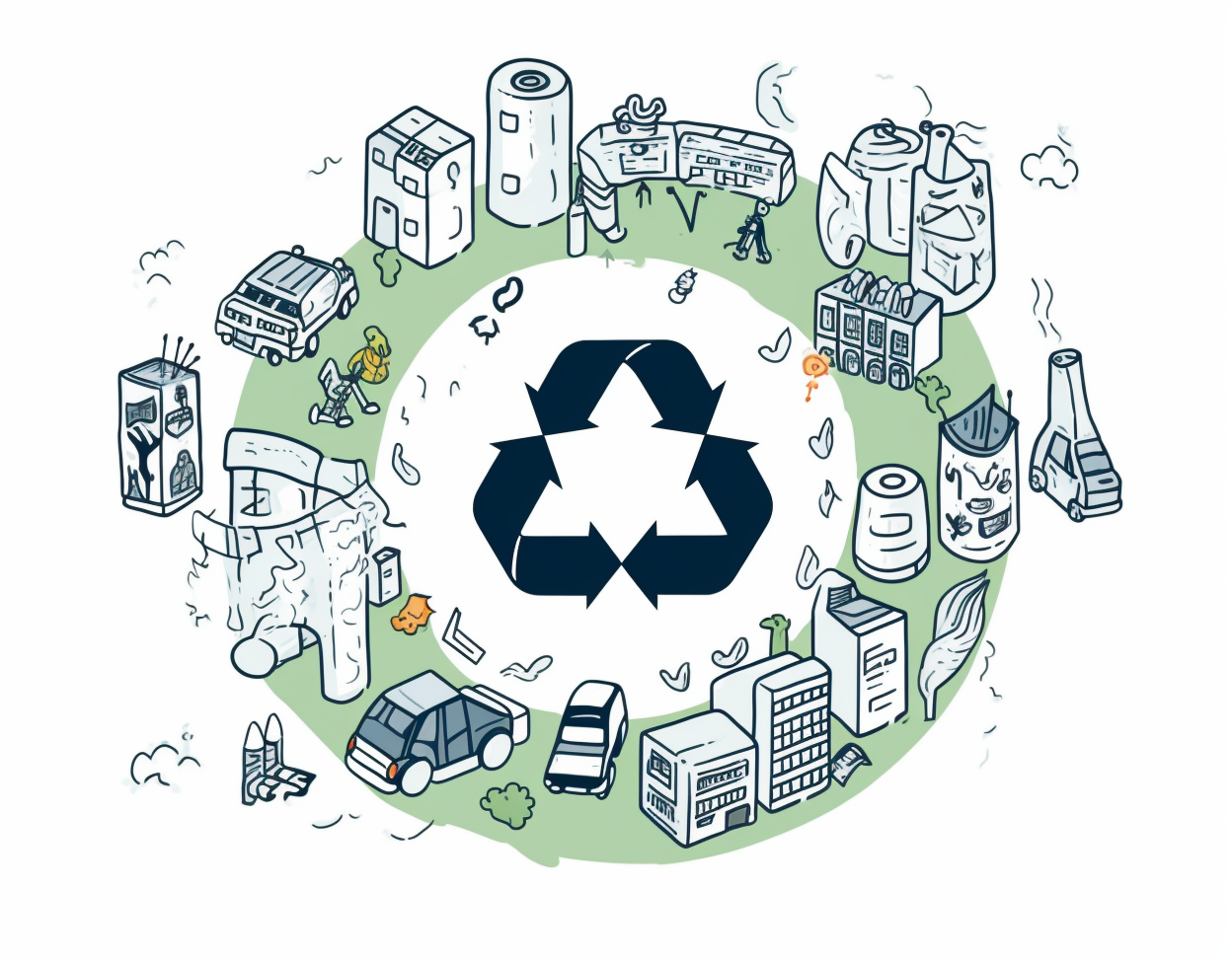Circular economy

The circular economy is an economic model based on the principles of designing out waste and pollution, keeping products and materials in use, and regenerating natural systems. In a circular economy, resources are kept in use for as long as possible, extracting the maximum value from them, and then recovering and regenerating materials at the end of their life cycle. This approach aims to create a sustainable and resilient economic system that works within the limits of our planet's resources.
The circular economy model is based on three principles:
- Design for circularity: This involves designing products, services, and systems with a focus on minimizing waste and maximizing reuse, repair, and recycling.
- Keep materials in use: This principle involves keeping products and materials in use for as long as possible, and extracting the maximum value from them before recovering and regenerating them.
- Regenerate natural systems: This involves restoring and regenerating natural systems and resources, such as water, soil, and biodiversity, through sustainable practices and ecosystem management.